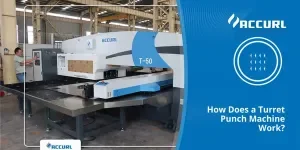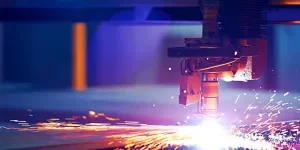In 2025, the demand for high-quality donut maker machines is set to rise, driven by the growing popularity of donuts and the expansion of the food service industry. This article provides an in-depth analysis of the market, key features to consider, and the benefits of investing in these machines. Professional buyers will find valuable insights to make informed purchasing decisions.
Table of Contents:
– Understanding the Donut Maker Machines Market
– Key Features to Look for in Donut Maker Machines
– Benefits of Investing in High-Quality Donut Maker Machines
– Comparing Different Types of Donut Maker Machines
– Evaluating the Cost and ROI of Donut Maker Machines
– Industry Trends Influencing Donut Maker Machines
– Making the Final Decision on Donut Maker Machines
Understanding the Donut Maker Machines Market
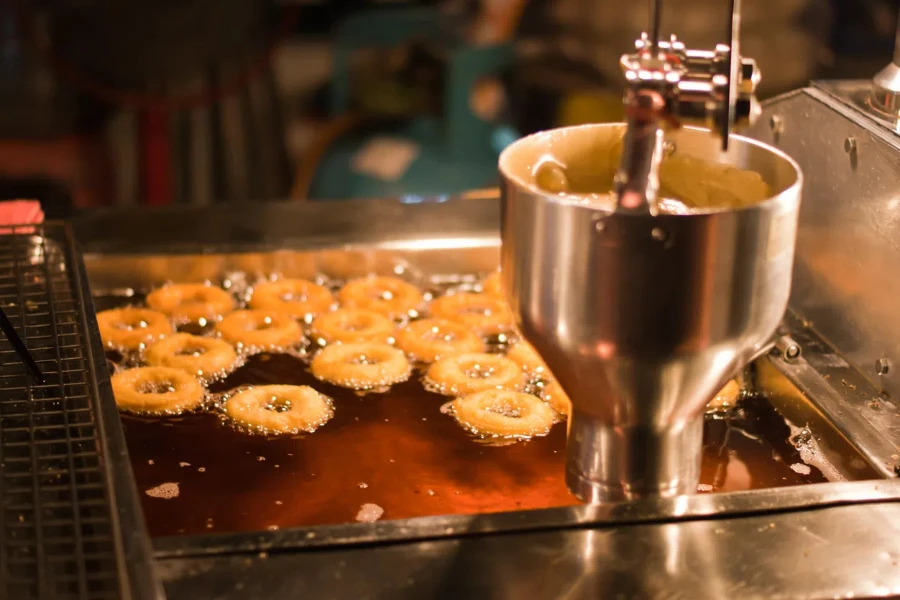
Global Demand and Growth Trends
The global market for donut maker machines is experiencing significant growth, driven by increasing consumer demand for bakery products and the expansion of the food service industry. According to recent market analysis, the donut maker machines market is projected to grow at a CAGR of 6.5% from 2024 to 2030. This growth is fueled by the rising popularity of donuts as a versatile and convenient snack option, appealing to a broad demographic.
In 2023, the market size for donut maker machines was valued at approximately USD 1.2 billion. By 2030, it is expected to reach USD 1.9 billion. This growth is attributed to the increasing number of bakeries, cafes, and quick-service restaurants globally. Additionally, the trend towards home baking and the availability of compact, user-friendly donut maker machines for domestic use are contributing to market expansion.
Regionally, North America and Europe are the largest markets for donut maker machines, accounting for over 60% of the global market share. The Asia-Pacific region is anticipated to witness the highest growth rate, driven by urbanization, rising disposable incomes, and the growing influence of Western food culture. Countries like China, India, and Japan are emerging as significant markets due to their expanding food service sectors.
Key Players and Manufacturers
The donut maker machines market is highly competitive, with several key players dominating the landscape. Leading manufacturers include companies such as Belshaw Adamatic Bakery Group, Lil’ Orbits, and Krispy Kreme Doughnut Corporation. These companies are known for their innovative product offerings and extensive distribution networks.
Belshaw Adamatic Bakery Group, a prominent player in the market, offers a wide range of donut maker machines, including automatic and semi-automatic models. Their machines are known for their durability, high production capacity, and advanced features such as digital temperature control and automated frying systems. Lil’ Orbits specializes in mini-donut machines, catering to both commercial and home users. Their machines are compact, easy to operate, and designed for high efficiency.
Krispy Kreme Doughnut Corporation, a well-known brand in the donut industry, also manufactures donut maker machines for their franchise operations. Their machines are designed to produce high-quality donuts consistently, with features such as precise temperature control and automated glazing systems. Other notable players in the market include Donut Robot, Henny Penny, and NORDIC.
Market Segmentation by Machine Type
The donut maker machines market can be segmented based on machine type into automatic, semi-automatic, and manual machines. Automatic donut maker machines are the most popular, accounting for over 50% of the market share. These machines are favored by large-scale bakeries and food service establishments due to their high production capacity, efficiency, and ease of operation.
Semi-automatic donut maker machines are also widely used, particularly in medium-sized bakeries and cafes. These machines offer a balance between automation and manual control, allowing operators to adjust settings for different types of donuts. Manual donut maker machines, while less common, are popular among small bakeries and home users. These machines are affordable, easy to use, and suitable for low-volume production.
In terms of application, the market can be further segmented into commercial and residential use. Commercial donut maker machines dominate the market, driven by the high demand from bakeries, cafes, and quick-service restaurants. Residential donut maker machines are gaining popularity, particularly in developed markets, as more consumers explore home baking as a hobby.
Key Features to Look for in Donut Maker Machines
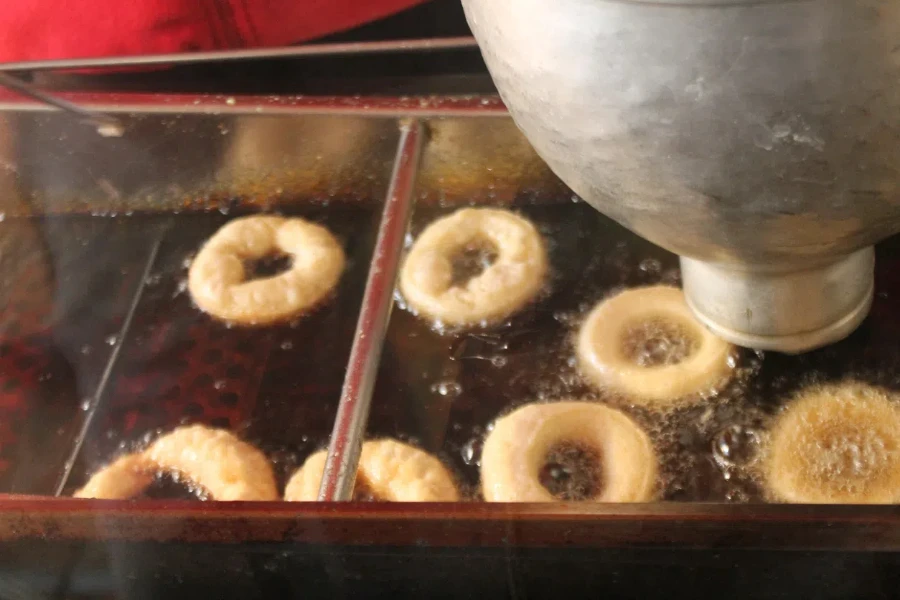
Production Capacity and Speed
When selecting a donut maker machine, production capacity and speed are critical factors to consider. High-capacity machines are essential for commercial establishments that need to produce large quantities of donuts quickly. For instance, automatic donut maker machines can produce up to 1,200 donuts per hour, making them ideal for high-demand environments.
Semi-automatic machines offer moderate production capacities, typically ranging from 300 to 600 donuts per hour. These machines are suitable for medium-sized bakeries and cafes that require flexibility in production. Manual machines, on the other hand, have lower production capacities, usually around 100 to 200 donuts per hour, making them ideal for small-scale operations and home use.
Temperature Control and Consistency
Temperature control is crucial for producing high-quality donuts consistently. Advanced donut maker machines come equipped with digital temperature control systems that allow precise adjustments to the frying temperature. This ensures that donuts are cooked evenly and achieve the desired texture and color.
Consistency in donut production is also essential for maintaining product quality. Automatic machines often feature automated frying and glazing systems that ensure each donut is cooked and coated uniformly. Semi-automatic machines may require manual adjustments, but they still offer a high degree of control over the frying process. Manual machines rely on the operator’s skill to maintain consistency, making them less suitable for high-volume production.
Ease of Cleaning and Maintenance
Ease of cleaning and maintenance is another important consideration when choosing a donut maker machine. Machines with removable parts and non-stick surfaces are easier to clean, reducing downtime and ensuring hygiene standards are met. Automatic machines often come with self-cleaning features, such as automated oil filtration systems, which help maintain the machine’s performance and extend its lifespan.
Semi-automatic and manual machines may require more frequent manual cleaning, but their simpler designs make maintenance relatively straightforward. Regular maintenance, such as checking and replacing worn parts, is essential for all types of donut maker machines to ensure optimal performance and longevity.
Benefits of Investing in High-Quality Donut Maker Machines
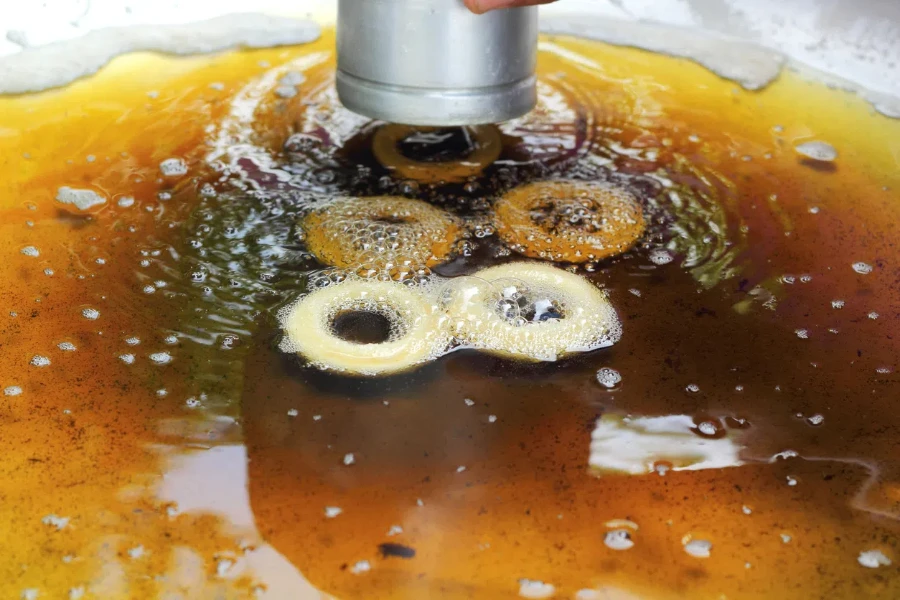
Enhanced Productivity and Efficiency
Investing in high-quality donut maker machines can significantly enhance productivity and efficiency. Automatic machines, with their high production capacities and advanced features, can streamline the donut-making process, reducing labor costs and increasing output. This is particularly beneficial for large-scale bakeries and food service establishments that need to meet high demand.
Semi-automatic machines also offer efficiency benefits, allowing operators to produce a consistent product with less manual intervention. Even manual machines, while less efficient, can improve productivity for small-scale operations by providing a reliable and easy-to-use solution for donut production.
Better Product Quality and Consistency
High-quality donut maker machines are designed to produce donuts with consistent quality. Features such as digital temperature control, automated frying systems, and precise dough dispensing mechanisms ensure that each donut is cooked to perfection. This consistency is crucial for maintaining customer satisfaction and building a strong brand reputation.
Investing in a high-quality machine also allows for greater control over the donut-making process, enabling operators to experiment with different recipes and techniques. This flexibility can lead to the creation of unique and innovative donut products that stand out in the market.
Long-Term Cost Savings
While high-quality donut maker machines may require a significant initial investment, they offer long-term cost savings through improved efficiency, reduced labor costs, and lower maintenance requirements. Automatic machines, in particular, can reduce the need for manual labor, allowing businesses to allocate resources more effectively.
Additionally, high-quality machines are built to last, with durable components and advanced features that minimize wear and tear. This reduces the frequency of repairs and replacements, leading to lower maintenance costs over time. Investing in a reliable and efficient donut maker machine can ultimately result in significant cost savings and a higher return on investment.
Comparing Different Types of Donut Maker Machines

Automatic vs. Manual Donut Maker Machines
Automatic donut maker machines are designed to streamline the donut production process. These machines can produce a high volume of donuts with minimal human intervention, making them ideal for large-scale operations. They typically feature programmable settings for temperature, cooking time, and conveyor speed, ensuring consistent quality and efficiency.
Manual donut maker machines, on the other hand, require more hands-on operation. These machines are often preferred by smaller bakeries or artisanal shops where customization and control over each batch are crucial. Manual machines allow bakers to adjust the dough consistency and frying time manually, which can result in a more personalized product.
The choice between automatic and manual machines depends largely on the scale of production and the desired level of control. While automatic machines offer speed and consistency, manual machines provide flexibility and a hands-on approach to donut making.
Countertop vs. Floor Models
Countertop donut maker machines are compact and designed for smaller production needs. These machines are ideal for businesses with limited space, such as small bakeries or cafes. They are typically easier to clean and maintain due to their smaller size and simpler design. Countertop models can produce a decent volume of donuts, but they may not be suitable for high-demand environments.
Floor models, in contrast, are larger and more robust, designed for high-volume production. These machines are often used in commercial bakeries and large-scale food production facilities. Floor models can handle continuous operation and produce a large number of donuts per hour, making them suitable for businesses with high customer turnover.
When choosing between countertop and floor models, consider the available space and production requirements. Countertop models are more suitable for small-scale operations, while floor models are better for large-scale production.
Specialty Donut Makers
Specialty donut makers are designed to produce unique types of donuts, such as mini donuts, filled donuts, or shaped donuts. These machines often come with interchangeable molds and attachments to create various donut styles. Specialty donut makers are ideal for businesses looking to offer a diverse range of products to attract different customer segments.
For example, a mini donut maker can produce small, bite-sized donuts that are perfect for events or as a novelty item. Filled donut makers, on the other hand, can inject fillings like cream or jelly into the donuts, adding variety to the product line. Shaped donut makers can create donuts in various shapes, such as hearts or stars, which can be a hit during holidays or special occasions.
Investing in specialty donut makers can help businesses differentiate themselves in a competitive market. These machines allow for creativity and innovation in product offerings, which can attract more customers and increase sales.
Evaluating the Cost and ROI of Donut Maker Machines

Initial Purchase Cost
The initial purchase cost of donut maker machines varies significantly based on the type and model. Automatic machines tend to be more expensive, with prices ranging from $5,000 to $20,000, depending on the features and capacity. Manual machines are generally more affordable, with prices starting at around $1,000 and going up to $5,000 for high-end models.
Countertop models are typically less expensive than floor models due to their smaller size and lower production capacity. Countertop machines can cost between $500 and $3,000, while floor models can range from $3,000 to $15,000. Specialty donut makers also vary in price, with basic models starting at $1,000 and more advanced machines costing up to $10,000.
When evaluating the initial purchase cost, it’s important to consider the long-term benefits and potential return on investment. Higher-priced machines may offer better efficiency, durability, and production capacity, which can lead to increased revenue over time.
Operating and Maintenance Costs
Operating and maintenance costs are crucial factors to consider when evaluating donut maker machines. Automatic machines typically have higher operating costs due to their complexity and the need for regular maintenance. These machines may require professional servicing, which can add to the overall cost. Additionally, automatic machines consume more electricity, contributing to higher utility bills.
Manual machines, while less expensive to operate, still require regular maintenance to ensure optimal performance. Maintenance tasks may include cleaning, lubrication, and occasional part replacements. The cost of maintenance for manual machines is generally lower compared to automatic machines, but it can still add up over time.
It’s essential to factor in the cost of ingredients, labor, and utilities when calculating the total operating cost. Efficient machines that minimize waste and reduce labor requirements can help offset higher initial and maintenance costs.
Return on Investment (ROI) Analysis
Conducting a return on investment (ROI) analysis is essential to determine the financial viability of purchasing a donut maker machine. The ROI analysis should consider the initial purchase cost, operating and maintenance costs, and potential revenue generated from donut sales.
For example, an automatic donut maker machine with an initial cost of $10,000 and monthly operating costs of $500 can produce 1,000 donuts per day. If each donut is sold for $1, the monthly revenue would be $30,000. Subtracting the operating costs, the net monthly profit would be $29,500. The initial investment would be recovered in less than a month, resulting in a high ROI.
Manual machines, with lower initial and operating costs, may have a longer payback period but can still offer a good ROI if the production volume and sales are sufficient. It’s important to consider the specific business context and market demand when conducting an ROI analysis.
Industry Trends Influencing Donut Maker Machines

Automation and Smart Technology Integration
The integration of automation and smart technology in donut maker machines is a significant trend shaping the industry. Automated machines equipped with advanced sensors and control systems can optimize the production process, ensuring consistent quality and reducing human error. These machines can adjust cooking times, temperatures, and conveyor speeds automatically based on real-time data.
Smart technology also enables remote monitoring and control of donut maker machines. Operators can use mobile apps or web interfaces to monitor machine performance, receive alerts for maintenance needs, and adjust settings remotely. This level of control and convenience can lead to increased efficiency and reduced downtime.
The adoption of automation and smart technology is expected to continue growing in 2025 and beyond. Businesses that invest in these advanced machines can benefit from improved productivity, lower labor costs, and enhanced product quality.
Health and Safety Regulations
Health and safety regulations play a crucial role in the design and operation of donut maker machines. Manufacturers must ensure that their machines comply with food safety standards, such as those set by the FDA or other regulatory bodies. This includes using food-grade materials, ensuring easy cleaning and sanitation, and implementing safety features to prevent accidents.
In recent years, there has been a growing emphasis on reducing the risk of foodborne illnesses and ensuring the safety of food production processes. Donut maker machines with features like automatic cleaning cycles, enclosed cooking chambers, and non-stick surfaces can help meet these stringent requirements.
As health and safety regulations continue to evolve, businesses must stay informed and ensure their equipment complies with the latest standards. Investing in machines that prioritize safety and hygiene can help avoid costly fines and protect the reputation of the business.
Consumer Preferences and Customization Options
Consumer preferences are increasingly leaning towards customization and unique product offerings. Donut maker machines that offer flexibility in terms of shapes, sizes, and fillings can cater to this demand. Machines with interchangeable molds and attachments allow businesses to create a variety of donut styles, from traditional rings to filled and shaped donuts.
Customization options also extend to dietary preferences, such as gluten-free, vegan, or low-sugar donuts. Machines that can handle different types of dough and ingredients enable businesses to cater to a broader customer base. This trend towards personalization and inclusivity is expected to grow, driven by consumer demand for unique and healthier options.
Businesses that leverage these customization capabilities can differentiate themselves in a competitive market. Offering a diverse range of products can attract more customers and increase sales, ultimately contributing to the success of the business.
Making the Final Decision on Donut Maker Machines
When making the final decision on donut maker machines, consider the specific needs of your business, including production volume, available space, and budget. Evaluate the initial purchase cost, operating and maintenance costs, and potential ROI. Stay informed about industry trends and regulations to ensure your investment aligns with future market demands.

